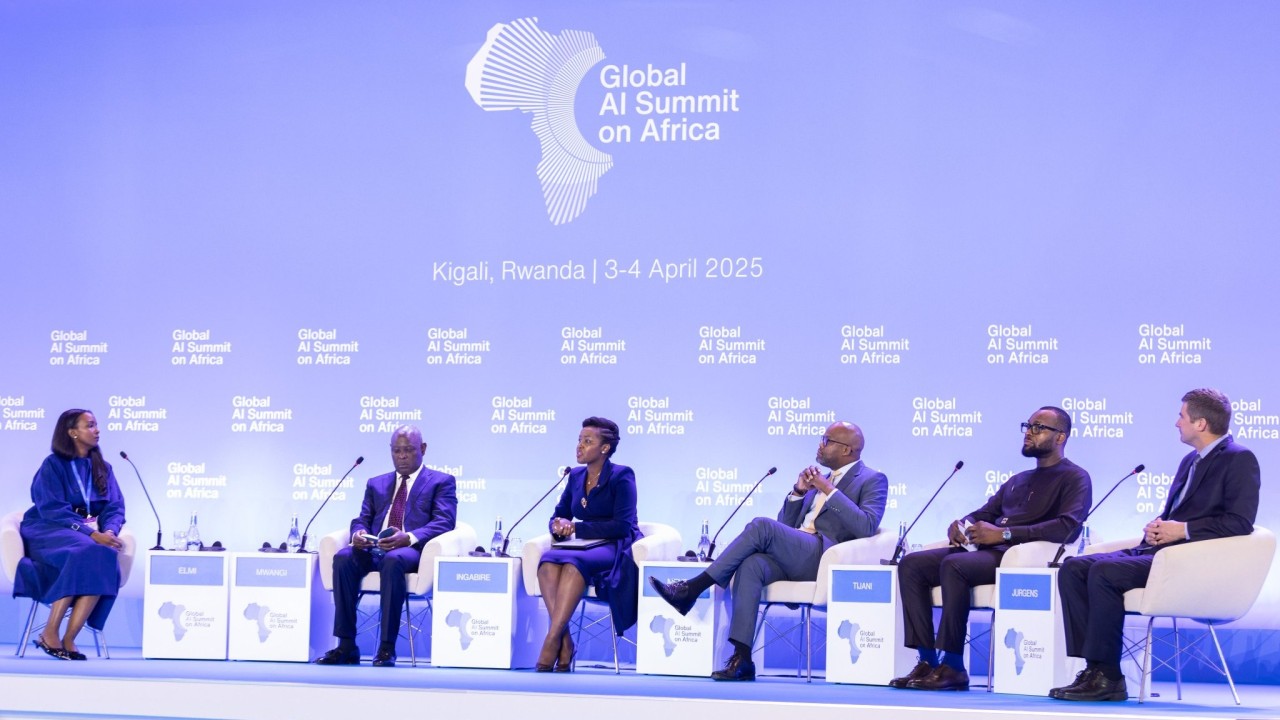advertisement
Why GAISAfrica2025 Was Africa’s AI Inflection Point

The Kigali Convention Centre buzzed with energy earlier this month as over 2,000 delegates—ranging from policymakers and AI builders to investors and youth innovators—convened for the Global AI Summit on Africa (GAISAfrica2025). The theme was bold: to position Africa not just as a participant in the AI revolution, but as a global leader in inclusive, ethical, and context-aware artificial intelligence.
Yet, despite the ambition, the event hasn’t escaped criticism. Some observers have asked pointed questions on social media and in op-eds: “Where are the builders?” “Where are the investors?” “Where are the outcomes?”
As someone engaged in leading digital transformation across the continent, I believe these questions are fair—but they also deserve factual, nuanced responses.
advertisement
Because this time, Africa didn’t just talk AI—it started building the foundation for it.
Where Are the Builders?
GAISAfrica2025 brought together over 400 students and young innovators, representing the next generation of AI talent in Africa. These were not passive attendees—they were speakers, demo participants, and workshop leaders, actively shaping the conversation around local AI solutions.
advertisement
But the real story lies in what comes next.
The summit featured the launch of AI Scale-Up Hubs—strategically positioned innovation centers aimed at equipping local startups and developers with the tools they need to move from ideas to impact. These hubs will provide compute power, regulatory sandboxes, data infrastructure, and technical mentorship—transforming isolated projects into scalable platforms.
And let’s be clear: builders need more than a stage—they need structure, strategy, and sustained investment. GAISAfrica2025 delivered the first two and laid the groundwork for the third.
advertisement
Where Are the Investors?
The centerpiece of the summit was the announcement of the Africa AI Fund, a proposed $60 billion capital platform designed to drive AI development across the continent. This fund, backed by public, private, and philanthropic stakeholders, aims to unlock the full spectrum of AI innovation—supporting startups, universities, public-sector transformation, and infrastructure development.
Critics may ask whether such a fund is realistic.
But Africa has done this before: from the African Development Fund to pan-African digital payment systems, we’ve built large-scale, multi-stakeholder financing instruments. What makes the Africa AI Fund unique is its intention to catalyze a new digital economy—with equity, ethics, and empowerment at its core.
Where Are the Outcomes?
GAISAfrica2025 wasn’t just a networking event—it was a policy and governance milestone.
Here are just a few of the concrete deliverables:
- Africa Declaration on AI: A unified commitment by African nations to develop AI systems that are sovereign, inclusive, and ethically governed. It’s not just a policy—it’s a framework for how we build with integrity.
- Africa AI Council: A new multilateral body designed to harmonize AI policy, promote continental collaboration, and ensure that Africa speaks with one voice in global AI forums.
- AI-for-Health, Education, and Agriculture initiatives: These sector-specific initiatives were not theoretical—they were co-designed with ministries, universities, and the private sector to support national development priorities using AI.
- Country-Level Pilots: A number of countries, including Rwanda, Ghana, and Kenya, announced the development of national AI strategies and sandbox partnerships.
- Youth Engagement through “AI for All”: A full track was dedicated to amplifying youth perspectives in shaping the future of African AI. Because if Africa is the youngest continent in the world, youth must help design the systems that will govern it.
These are real steps forward—and they mark a shift from dialogue to delivery.
So, Where Are the Results?
If we expect AI unicorns to appear overnight, we’re missing the point. The results of GAISAfrica2025 are strategic and systemic:
- A funding mechanism for scale
- A governance body for alignment
- An ecosystem blueprint for local innovation
- Platforms for youth and policy engagement
- Regional hubs to accelerate AI startups
The transformation of Africa into a digitally sovereign, AI-enabled continent won’t happen in one summit. But it will happen—because of what was seeded at this one.
From Critique to Continuity
Healthy skepticism is essential in any ecosystem—but so is continuity. We should question boldly, yes—but also build boldly. The foundations laid in Kigali are not perfect, but they’re meaningful.
Africa has declared that it will not simply adapt to global AI trends—it will shape them, informed by its values, languages, and lived realities.
GAISAfrica2025 was not a tech showcase—it was an architectural unveiling. It offered a vision backed by capital, structure, and intent. Now it’s up to leaders, technologists, and civil society to turn this blueprint into inclusive, impactful systems.
Let’s not drown progress in cynicism. Let’s keep building.
About the Author
Timothy Laku is a CIO and digital transformation strategist with 20+ years of experience driving innovation across Africa. He has led over 100 digital initiatives, with a focus on AI, cloud computing, data systems, and sustainable impact in health, education, and agriculture.